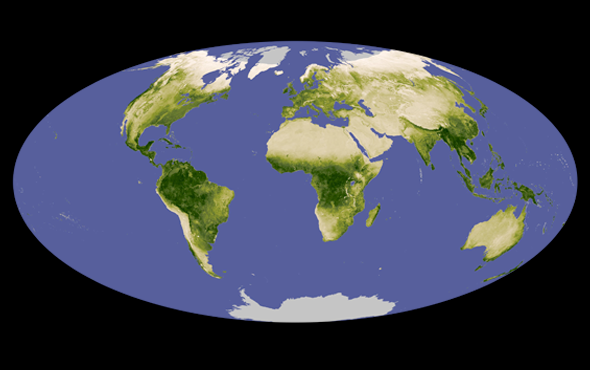Synchronizing chimpanzees in Zambia, a plankton-trapping ecosystem in the Maldives, Neandertal teeth from Spain, and much more in this month’s Quick Hits

MALDIVES
Researchers have identified a new type of ecosystem, which they have named the “trapping zone,” in the Indian Ocean. In it, swarms of tiny traveling animals get stuck among rocks and reefs, becoming easy prey for sharks and other large predators.
PAPUA NEW GUINEA
Scientists found evidence that a giant kangaroo species that walked on all fours lived in New Guinea until 20,000 years ago, thousands of years after most megafauna went extinct in neighboring Australia. The researchers suspect giant mammals lasted longer on the island because far fewer humans lived there.
SAUDI ARABIA
Drone footage suggests the Saudi government has begun constructing a city that officials have claimed will be 105 miles long and 0.1 mile wide—and enclosed within giant mirrors to blend with the landscape. The city is designed to be traversable by foot or rail, with a low carbon footprint.
SPAIN
Neandertal teeth recovered from Gabasa indicate these ancient human relatives were primarily carnivores. The teeth have low zinc 66, consistent with a meaty diet—which challenges prior work suggesting Neandertals were more omnivorous.
ZAMBIA
A study of chimpanzees at the Chimfunshi Wildlife Orphanage Trust shows the animals instinctively synchronize their steps when walking next to each other. This behavior is also seen in humans, suggesting that the unthinking coordination of basic motions is a shared ancestral trait.
This article was originally published with the title “Quick Hits” in Scientific American 328, 1, 20 (January 2023)
doi:10.1038/scientificamerican0123-20a
ABOUT THE AUTHOR(S)
Daniel Leonard is a freelance science journalist and former Scientific American editorial intern whose work focuses on space, tech and natural history. Follow Leonard on Twitter @dalorleon
